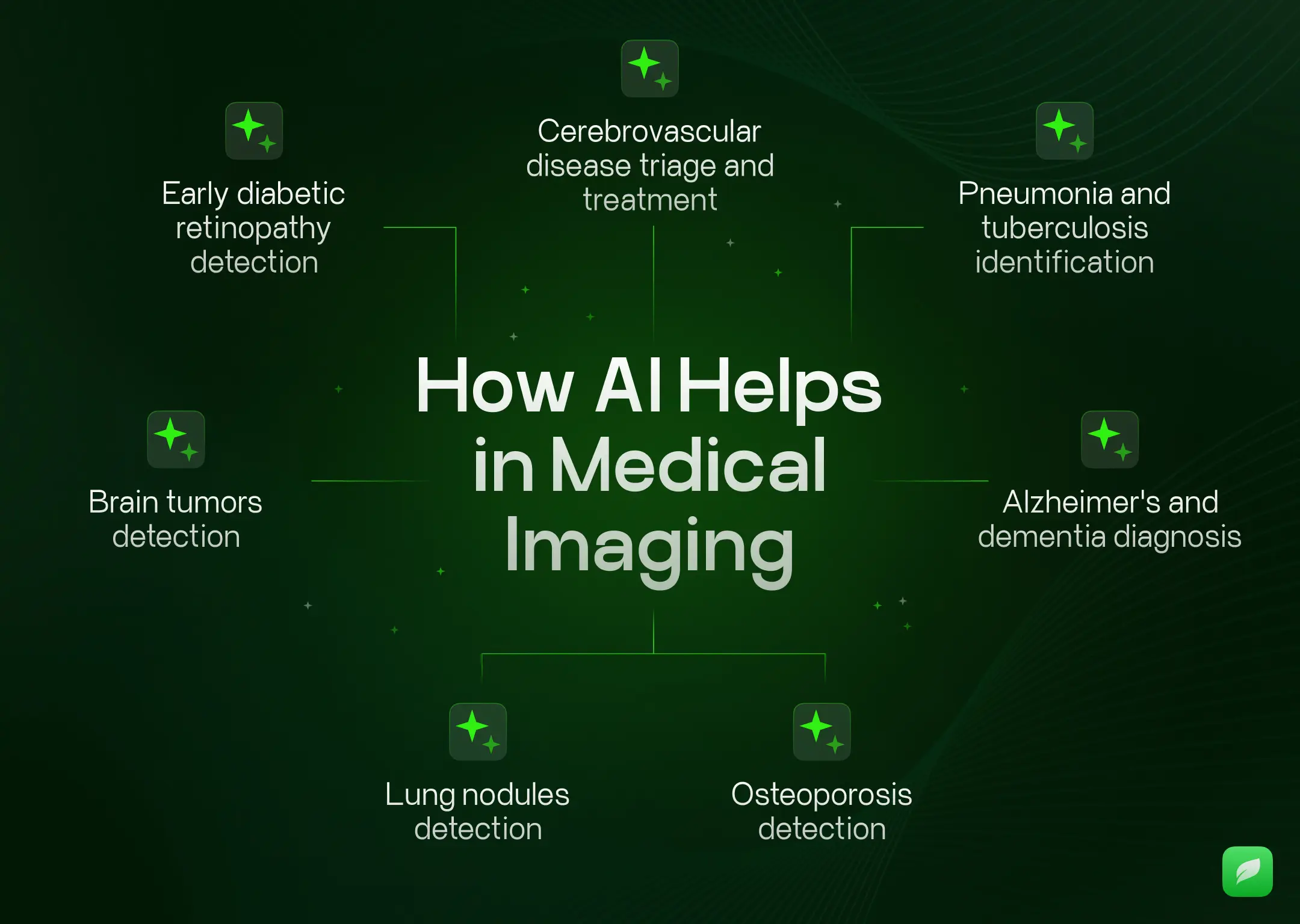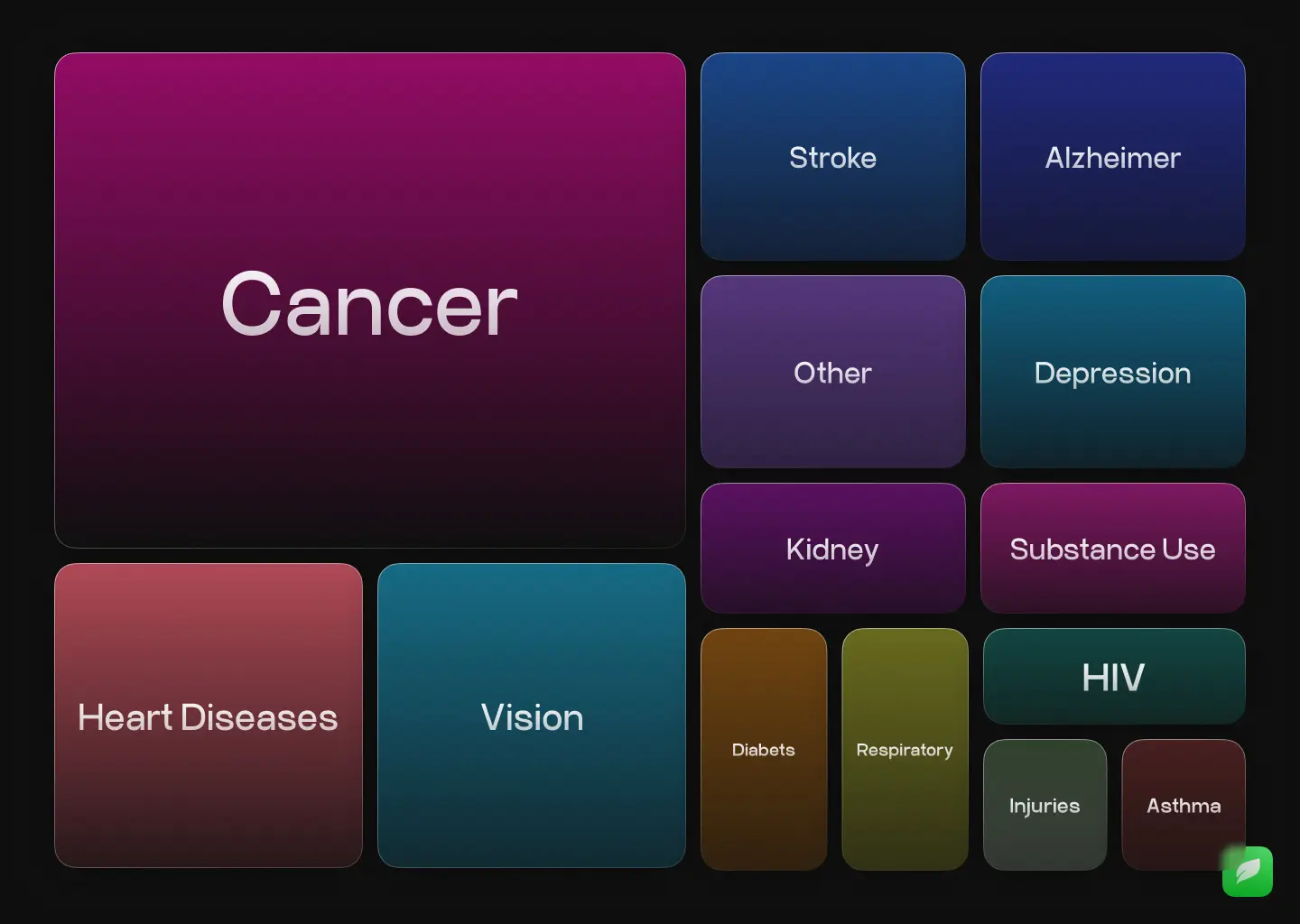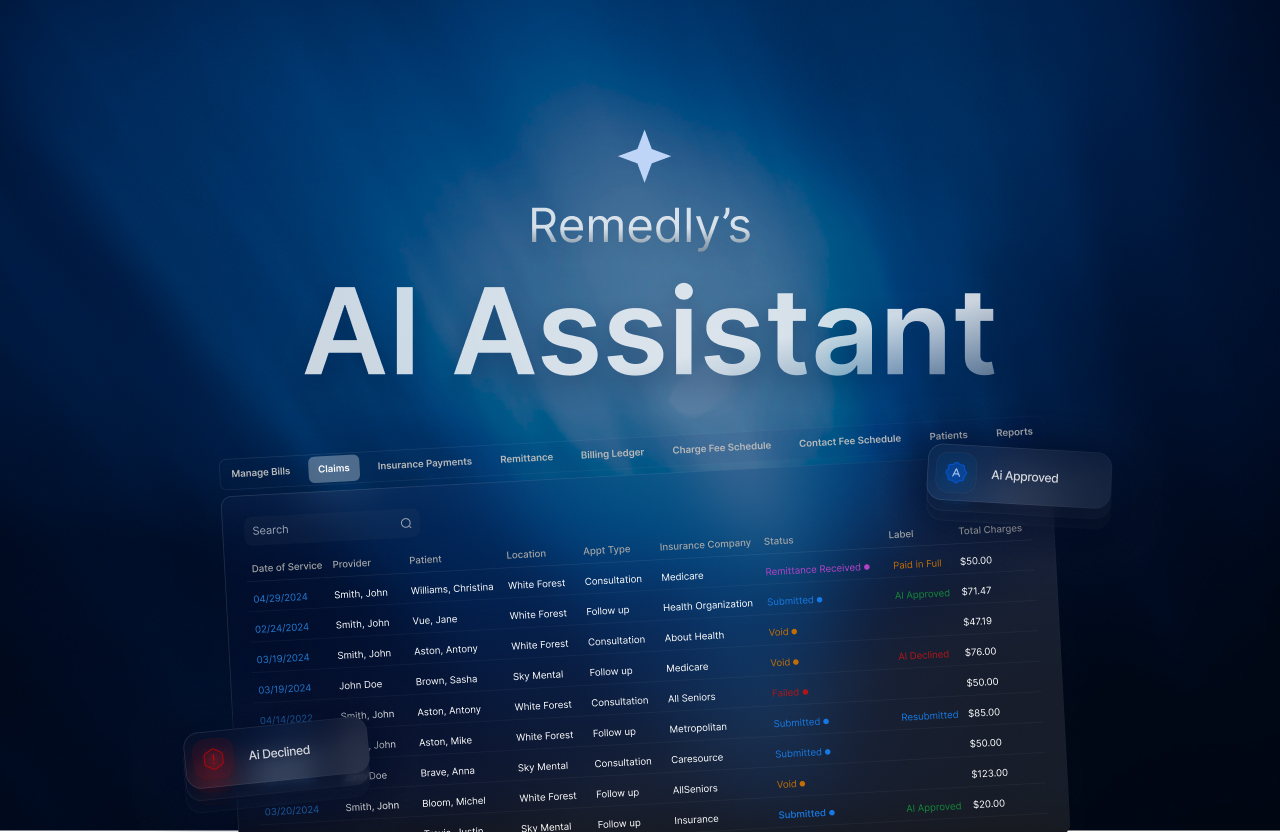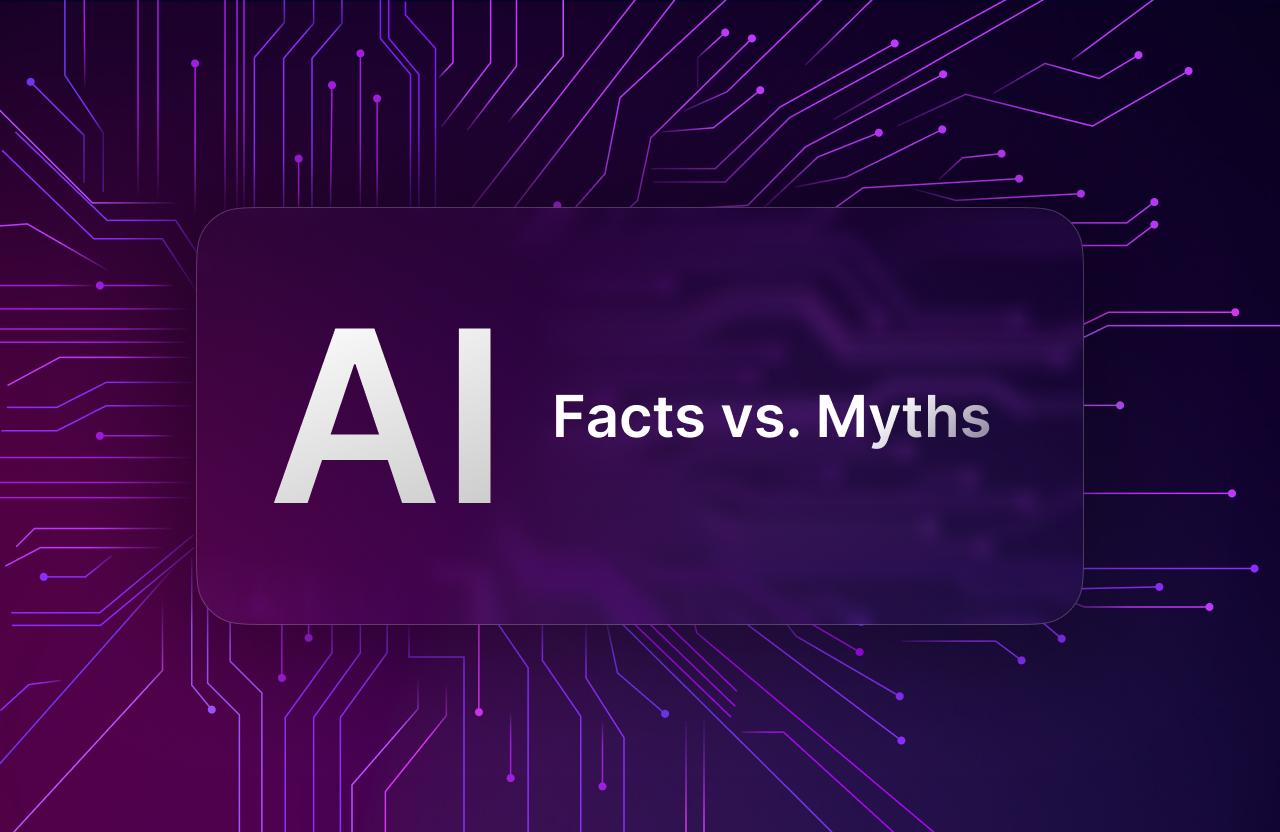- Enhanced Diagnostics with AI
- Safe Medical Treatment
- Patient-Centred Care
- Conclusion
Table of Contents:
Did you know that AI has become the Word of the Year 2023 by Collins Dictionary? Despite its popularity, we believe it's essential to understand what it means and how it works in its true colors.
Artificial intelligence (AI) is basically a technology that simulates human intelligence while performing activities that normally need human thought and ability. Since its introduction into medicine in the 1950s, artificial intelligence has benefited medical professionals by increasing the precision of diagnoses, facilitating individualized treatment plans, and granting them access to up-to-date medical data. Ultimately, this integration improves clinical results and patient care.
Our reliance on digital gadgets has grown as computer technology has advanced. This has resulted in more data available for gathering and usage, which has sparked interest in AI applications in healthcare. Following its widespread use in medicine for clinical, diagnostic, rehabilitative, surgical, and prognostic treatments, AI excels in illness detection and clinical decision-making.
Its applications include large data analysis, which uncovers hidden insights, and novel medication discovery for healthcare management and patients. In this article, we will look at the various ways AI is used in modern-day healthcare. Let's dive right in!
Enhanced Diagnostics with AI
Despite advances in medicine, illness diagnosis remains a huge challenge and AI, particularly machine learning (ML), can contribute tremendously in this regard. ML uses a lot of solid data, enhancing diagnostic accuracy. In addition, AI aids in the timely management of massive volumes of patient data or medical big data, allowing clinicians to see trends and make better judgments.
AI, for example, can swiftly analyze body scans to identify issues and use advanced 3D mapping to accurately interpret complicated medical pictures, allowing for faster and more exact diagnosis. But how exactly does AI accomplish this feat?
Research Accelerated by AI
AI algorithms are critical in medical research and medication development because they improve study design, patient recruitment, and data analysis. They enable tailored cancer therapies by detecting genetic markers and transforming clinical trials with virtual control groups. Furthermore, AI speeds up drug research by analyzing large databases, repurposing existing drugs, and creating molecular architectures. This leads to more cost-effective and efficient drug development procedures and better healthcare results.
A recent study in targeted immunotherapy using AI provides a breakthrough in understanding antigen-immune cell interactions, addressing a long-standing barrier in the area. AI models properly represent how immune systems detect target antigens by considering changes in molecular structure over time. This development has the potential to identify more effective immunotherapy targets, such as vaccines or engineered immune cells. This could lead to improved treatment outcomes for cancer and viral diseases.
AI and Early Disease Detection
AI is pivotal in diagnosing blood disorders like leukemia at an early stage through its ability to detect subtle changes in blood cells. It helps medical practitioners identify probable illness symptoms early on and enhances the accuracy of disease marker detection over time. For example, Scopio Labs has developed an AI-driven imaging platform that enables the early detection of hematological-based diseases. This platform empowers clinicians to make better decisions by revealing details invisible to the naked eye through high-resolution imaging.
Additionally, AI is transforming cancer diagnosis by accurately detecting early-stage tumors on CT scans. Cancer caused about 10 million deaths worldwide in 2020 and is estimated to cause more than 16 million deaths by 2040. Thus, early detection significantly improves patient outcomes and survival rates. For example, the Houston Methodist Research Institute has developed an AI program that interprets mammograms quickly and accurately and reviews breast cancer patient data. In addition to early detection, AI relevance is also observed in complex analysis.
Analyzing Complex Medical Imaging

AI excels in numerous complex analyses, leaving minimal room for errors. For instance, AI in medical imaging analyzes CT images, MRI scans, and X-rays to help diagnose various illnesses, increasing diagnostic speed and accuracy and improving patient outcomes.
AI has also been applied in radiomics, where it computes and quantitatively describes medical pictures using mathematical extractions. Its use in medical imaging has been recorded in early cancer diagnosis via full-body MRI scans by businesses such as Ezra Flash, while Zebra Medical has used AI in identifying osteoporosis in X-rays.
Safe Medical Treatment
AI has transformed medical treatments, assuring efficacy and safety across several healthcare industries. One of the most notable applications is tracking COVID-19 and vaccine development. AI uses machine learning models to quickly scan large amounts of research data to discover the most promising vaccine candidates, accelerating the research process while lowering costs.
In addition, AI-powered brain-computer interfaces are revolutionizing the rehabilitation of people with motor dysfunction. These interfaces provide precise control and function restoration by connecting brain impulses to external devices, providing fresh hope and a higher quality of life for patients suffering from illnesses such as paralysis, speech impediment, etc.

High-impact diseases where AI is used for treatment. Source: Global Evolution of Research in Artificial Intelligence in Health and Medicine: A Bibliometric Study.
These advancements, among others, underscore AI's pivotal role in providing safe and effective medical care, optimizing treatment strategies, and enhancing patient recovery. AI offers revolutionary solutions to critical safety challenges through:
Better Healthcare Decisions
With technological advancements, Artificial Intelligence solutions give health workers real-time access to medical data and information updates, critical for good healthcare management. By facilitating the analysis of massive volumes of data, AI can offer insights essential to making decisions.
With the influence of AI, medical personnel can employ predictive analytics, allowing for proactive illness treatment, risk factor detection, and individualized care programs. For example, the UC Davis Health research team created a machine learning technique to predict hepatocellular carcinoma (HCC) and identify risk factors for its development. HCC is a type of liver cancer that poses a risk to patients with metabolic dysfunction-associated steatotic liver disease (MASLD). The challenges of identifying at-risk patients have led to the use of AI algorithms to aid further assessment.
Furthermore, AI-assisted clinical decision-making streamlines healthcare practitioners' jobs, increasing efficiency and effectiveness. Clinicians use EHR systems to improve care processes that extend beyond clinical practice, such as knowledge of patient context and protocols. Epic, for example, automates note-taking and creates draft replies to patient inquiries.
Robotic Assistance
Do you know AI-powered robots now play a role in medical surgeries? Outfitted with advanced mechanical arms and cameras, AI helps surgeons achieve the precision and accuracy required for optimal treatment outcomes. Surgical and rehabilitation robots are developed to execute certain surgical operations with great automation. For example, intuitive da Vinci robotic surgical systems provide sophisticated capabilities such as fluorescence imaging, integrated table motion, a wristed 3DHD endoscope, and more. These AI-powered semi-automated robots can improve surgical results and patient safety while lowering the chance of human errors.
Additionally, pet robots provide companionship and therapeutic advantages in dementia care by meeting the needs of patients, both emotionally and socially. In most situations, as dementia progresses, many people face behavioral and psychological issues, which can increase the cost and hardship of caring for them. Under such circumstances, robotic baby harp seals engage with the patients, consequently reducing their tension, despair, and anxiety.
Patient-Centred Care
Adequate care is no longer far-fetched for people living in areas with limited access to medical facilities. Remote patient monitoring powered by AI enables individualized treatment and real-time health insights as AI provides remote medical image processing technology.
The onset of the COVID-19 epidemic brought about an increase in demand for AI in healthcare, particularly for individuals with chronic illnesses. Telemedicine and wearable devices are among the various approaches taken to achieve remote AI-supported patient care. Telemedicine allows for real-time medical consultations, improving healthcare access while minimizing hospital visits.
Wearable gadgets, such as those used to monitor glucose levels in diabetics, are programmed to broadcast data that allow for precise remote adjustments to treatment regimens. In addition, AI-powered solutions, such as VirtuSense, detect patient movements to avoid falls and improve remote patient monitoring for doctors. The positive impact of AI on patient-centered care is also observed in the following areas:
Virtual Assistance
Healthcare virtual assistants, such as chatbots, apps, and intelligent speakers, are valuable tools for medical professionals and patients. They offer important assistance by providing timely information, organizing appointments, automating mundane chores, and more. According to research findings, 84% of ChatGPT replies to patients' cardiovascular disease prevention questions were considered suitable.
Precision Medicine and Mental Health
Precision medicine adapts medical therapy to each patient's genetic, environmental, and lifestyle features. AI is critical in precision medicine because it analyzes large amounts of data to anticipate therapy responses, identify drugs and doses, and improve patient outcomes. For example, in genotyping, AI might inform healthcare providers about possible issues with a certain pharmacological treatment and recommend an alternate therapy.
Precision medicine is also crucial in mental health, and AI algorithms render assistance through facilitated early detection and tailored treatment of mental illness symptoms and drug use disorders. For example, Kintsugi Health has created vocal biomarkers that identify depression by studying voice dynamics. This helps therapists develop appropriate treatment programs.
Conclusion
Artificial intelligence has advanced healthcare well beyond early illness identification and treatment. AI-powered techniques, such as machine learning, artificial neural networks (ANN), and robotics, are widely used to treat complicated illnesses such as cancer, cardiovascular disease, diabetes, Alzheimer's, and respiratory infections. Looking ahead, AI is predicted to contribute more to diagnosis and therapy. Advances in machine learning will allow for more accurate and effective imaging technologies for diagnosis, treatment, and forecasting.
These trends point to a bright future for AI-driven innovation in healthcare, emphasizing the importance of additional well-funded AI research. They are especially significant in domains where objective diagnostic procedures are lacking, consequently creating a stronger healthcare system.


 Back
Back


